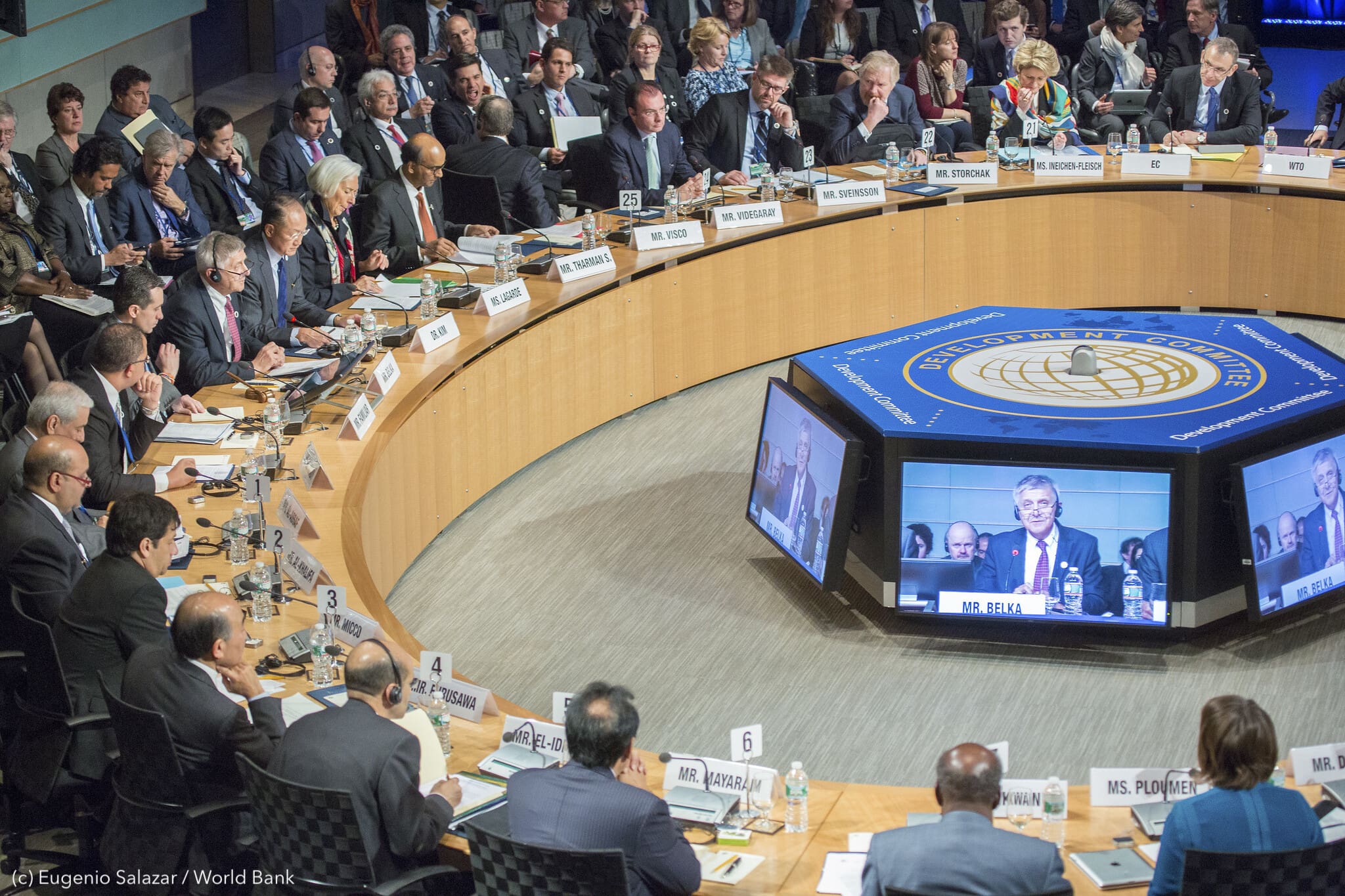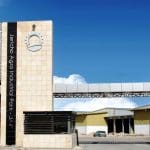
Overview
The World Bank’s growth report on the Occupied Palestinian Territories concludes – unsurprisingly – that growth is unsustainable because it is aid-driven, and yet it recommends private sector-led growth as a way forward. Can such growth or indeed any form of sustainable development really take place under the conditions of prolonged occupation, colonization, and dispossession? This question badly needs to be addressed because so few development organizations, least of all the Bank, do so. Al-Shabaka Program Director Alaa Tartir and Guest Author Jeremy Wildeman do so by deconstructing the Bank’s report, bringing to light the danger of present and past recommendations, and calling for a completely new approach.
Wielding Unwarranted Influence
In July 2012, the World Bank released a new report, Towards Economic Sustainability of A Future Palestinian State: Promoting Private Sector-Led Growth. It provides a prognosis for the state of the Palestinian economy, the obstacles it faces, and its major weaknesses and structural distortions. The report also provides policy recommendations for the development of a sustainable Palestinian economic model based on export-driven, private sector-led growth. The report’s frank conclusion is that recent Palestinian economic growth is illusory and unsustainable precisely because it is aid-driven and those aid levels are expected to decline over time. This conclusion comes as no surprise to many long-time observers, who have heralded the report as further proof from a major international institution that the current aid model is not working1 and needs to be reformed. For others, the report’s conclusions provide further evidence that the Palestinians are not yet ready to have their own independent state.
Regardless of the different interpretations of the report’s findings, what is surprising is that the World Bank does not appear to be learning from the experiences and mistakes in its own policy recommendations after 20 years of involvement in Palestinian economic and aid planning. The World Bank continues to provide policy recommendations that are not contextually relevant, fail to take into account the day-to-day realities of occupation, and seem bereft of a historical understanding of the Government of Israel’s long-standing policies toward the Palestinians. By providing recommendations advocating a model of growth that relies on closer economic integration with Israel and an export-driven economy based on the East Asian “Tiger” economies, the World Bank is making proposals which are doomed to fail and would only result in the further waste of valuable time and resources at precisely a point in time when the Palestinians can least afford it. The development of a market-driven, export-driven economy is completely impossible under occupation. At best, the World Bank recommendations provide a distraction from the primary need for the Palestinians, ending the occupation and Israeli rule, rather than creatively finding new ways to adapt to it.
The World Bank has exercised and continues to exercise a preponderance of influence over the development aid process in Palestine. In spite of conventional wisdom that the aid recipient should lead their own national strategy2 – and indeed has the right to do so – international institutions such as the World Bank have taken lead roles in developing that strategy for the Occupied Palestinian Territories (OPT) back to the beginning of the now defunct Oslo Peace Process in the early 1990s. These decisions are often taken with the rubber stamp given by an unelected and mostly inept Palestinian government. For example, with input from the Palestinians and donors, the World Bank produced a series of reports that provided the first comprehensive review of the Palestinian economy and its requirements for rehabilitation, which formed the basis on which international donors designed their aid programs after the signing of the Accords. One of the reasons that the World Bank’s recent growth report garnered so much attention, is that international donors still refer to the World Bank reports for developing their strategies. The World Bank is therefore a policy adviser verging on policy maker and thus bears more than tertiary responsibility for the results of aid in Palestine and the status of the ‘development for peace’ strategy that aid is predicated upon. The figures tell the story: in 1991 the private sector accounted for 80% of GDP but in 2009 it was so weakened that aid contributed 49% of GDP3.
Policy Advice Devoid of Context
The World Bank growth report’s own statements, assumptions, hypotheses, conclusions and set of recommendations can be deconstructed and connected to the political implications and the economic realities of occupied Palestine. Take the report’s opening paragraph ‘while the Palestinian Authority (PA) has had considerable success in building the institutions of a future state, it has made less progress in developing a sustainable economic base’. Institution building has been a critical focus of donor support since 1994 based on the Bank’s recommendation, the assumption being that strong and stable institutions would lead to economic growth and peace. Yet after years of institution building and declarations of progress in frequent World Bank reports, the Palestinians are further from independence and in a far worse economic situation than ever before. Moreover, during this whole period, the World Bank and the donor community overlooked the complex network of corruption and the neo-patrimonial system of governance, while somehow celebrating the invisible dividends of the peace process4.
A crucial miscalculation by the World Bank is a misunderstanding of the impact of the Palestinian Authority’s (PA) lack of sovereignty to exercise its own policies. The PA is largely kept solvent by international donors, most of whom prioritize their relationship with Israel and/or with the United States, which itself favors Israel. Whenever the Palestinian government takes decisions they disagree with, those donors can and do threaten and withdraw funding in order to shape policy that better matches Israel’s interests. This can trump Palestinian interests, as happened with the aid boycott following the 2006 election. Further, much of the PA’s monthly budget allocations come from funds transferred by Israel via the one-way Customs Union set up under the 1994 Paris Protocol. Israel takes an administrative percentage from the funds, and readily withholds them when it feels it needs to punish the PA for policy decisions it disagrees with, such as applying for state status at the United Nations5. As a result of these funding relationships and aid dependency, the PA essentially exists at the behest of international donors and also Israel, leaving it with very little room to carry out independent policy. In effect, national strategic policy decisions can only be enacted if they have the approval of the donors, Israel and international institutions that advise the donors such as the World Bank.
To make matters worse, the PA cannot develop an independent tax base because it does not exercise control over its own borders. Palestinian land is split up into tiny and economically non-viable Bantustans denoted as Areas A, B, and C in the Oslo Accords. Meanwhile of those pieces of land, the PA/Fatah political party lost control of the besieged Gaza Strip in 2007. The PA exists in a state constant insecurity and emergency, and is unable to raise its own funds due to a lack of sovereign power and the economic de-development and resulting impoverishment that has taken place under occupation. It is therefore unreasonable for the World Bank to expect that the PA can make any significant sovereign policy decisions or to measure its development progress next to developing states in East Asia whose economies grew free from foreign intervention or occupation. Perhaps most shocking is that the World Bank does not focus on the occupation explicitly as the primary reason for the lack of progress in Palestinian growth. While the World Bank does mention aspects of the occupation as detrimental to growth in all of its reports on Palestine, it does not focus on those as the reason for the lack of progress and thus its analysis is not translated into relevant recommendations.
Indeed, in the growth report the World Bank reveals that it is providing policy recommendations that are made in complete ignorance – or deliberate neglect – of the actual historical context of the policies of the Government of Israel toward the Palestinians since 1948. Those policies include ethnic cleansing, land expropriation, the theft of private property, arbitrary arrest, premeditated violence6, city-wide curfews, road-blocks, checkpoints, separation of populations based on ethnicity and religion, and deliberate inequality within the Israeli legal system7. While at times the Israelis have sought to limit Palestinian economic growth to constrain their independence of action or to punish them for disobedience, at many other times the Israeli state itself has acted like a parasite deriving significant economic benefits from a much poorer Palestinian economy8. By providing a report that does not admit that the development of a functional economy and growth are rendered impossible under such severe conditions, the World Bank has proven unwilling to ‘contextualise’ the conflict and accept the reality of Israel’s de-development process in the OPT, turning itself into a witting and unwitting accomplice to that process.
Sanitizing the Occupation
The World Bank not only de-contextualises the development process by minimising the meaning of the occupation and the settler colonial project, but it also refuses to look at past policy recommendations where it itself has made errors. Instead it prefers to leave failure with the Palestinians by blaming them for implementing policy poorly, even though the Palestinians themselves have very little room to maneuver due to their aid dependency and the devastating effects of occupation. Nothing reveals this better than the World Bank’s criticism of a bloated government payroll and the recommendations to develop a better customs union with Israel, when that payroll has been necessary to keep Palestinian families from falling into even deeper poverty and to keep the Palestinian population engaged in the flawed ‘development for peace’ process that the international community is providing aid for. Nor is sufficient attention paid to the many Palestinians who struggle to do business, not for sake of growth, but rather just for sake of survival.
In consecutive World Bank reports dating back to the early 1990s, explicit reference to Israel and the role it plays is downplayed through the use of euphemisms and sanitized terminology. The growth report uses terms such as ‘harsh system of closure’ and ‘distorted state of development’, which do not properly convey the gravity of what are truly severe systems of oppression such as military encirclement and deliberate policies of impoverishment used to inflict mass punishment. Sanitized terminology camouflages the reality of a colonial Zionist project and the de-development process which are part of long established Israeli policies of theft of private property, seizure of Palestinian land and ethnic cleansing. For example, the World Bank often replaces occupation with ‘security restrictions’. ‘Security’ implies that Israel has a legitimate right to undertake policy in order to protect its own citizens. It is used conceptually even when the policy may mean destroying a Palestinian village for military training or the construction of the Wall separates a village from its land. In fact, the word ‘occupation’ itself was mentioned only five times throughout the report, even though all aspects of everyday life in Palestine are regulated by occupation.
This minimization of the occupation results in aid programs being designed which are not appropriate to the actual conditions of occupation, suggests that the effects of occupation are not as dire as they really are, and contributes to the false illusion that development can take place under occupation. The consequence is that the World Bank displays deference to the colonizer as does much of the donor community working in the OPT.
Another major problem of the growth report is the way it deals with poverty. The report provides estimates of poverty and unemployment that are impossibly low and probably misleading. The report states that the poverty rate in the West Bank is 16% while unemployment is only 20%, despite the fact that many other reports place these figures far higher. Food insecurity indicators alone indicate otherwise. Perhaps this is all due to the World Bank figures reflecting changes made to the methodology of the calculations undertaken by the Palestinian Central Bureau of Statistics (PCBS), based on feedback from and financing by the World Bank. Those ‘massaged’ figures create the impression that its policy recommendations are succeeding in at least some ways.
The use of such statistics also reflects a problematic understanding of poverty. Poverty in the OPT is not referred to as a politically constructed human catastrophe or poverty through disempowerment, but rather as a poverty of insufficiency. This is a result of the de-contextualisation of the conflict, that allows the origins of poverty to be misunderstood. It is calculated as ‘expenses-based’ poverty, which includes food aid, emergency aid and other forms of assistance, hence obscuring the real face of ‘income-based’ poverty. If poverty is calculated according to the income-based definition, then almost half of the Palestinians live in poverty. In addition, unemployment figures do not include the underemployed and discouraged workers who have suffered nearly a decade of severe economic retraction. Thus, the numbers presented by the World Bank do not provide an accurate impression of actual poverty and unemployment in the West Bank and Gaza.
Ridiculous – and Dangerous – Recommendations
One of the strangest recommendations made in the report, which is also made in past World Bank reports, is that ‘the PA should strive to build a business environment that is among the best in the world and not merely on par with its neighbors.’ This is utterly impossible to do under the conditions of occupation, where Palestinian civil and property rights are simply ignored by an Israeli state which is simultaneously engaged in the mass-expropriation of Palestinian land. It is a ridiculous suggestion. The business climate is in fact so bad that some research has shown that there are some Palestinian businesspersons who prefer to invest in Israel because of the insecure conditions in occupied Palestine. The growth report also states that ‘the entire Gaza Strip is under Palestinian control’, while in fact 17% of the densely populated Gaza Strip has been appropriated as a buffer zone for ‘Israeli security reasons’ and up to 30% of the lands in Gaza are not accessible. Palestinian fishermen cannot fish their own coastal waters due to the siege on the Gaza Strip, just one indication of an inability to move freely. Building a world class environment for business and investment is impossible under occupation, and such a recommendation can only be made by sanitizing the terminology and ignoring the realities of occupation.
Another dangerous belief long propagated by the World Bank is that the Palestinian economy can benefit from deeper integration with the Israeli economy. The actual experience from decades of Palestinian interaction with the Israeli economy has indicated otherwise, itself a story of de-development9, with Palestinian industry being deliberately sabotaged in favor of Israeli industry and Palestinians relegated to low-wage manual laborers10. The classic World Bank economic assumptions that recommend ‘free trade agreements between a future Palestinian state, Israel and neighboring countries’ as the most promising economic growth model according to which ‘Israeli manufacturers could tap skilled but inexpensive Palestinian labor to export, including to the Arab world’ (P.v), have never been embraced by Israel. The Palestinians cannot compete fairly in the Israeli economy, to take advantage of what the World Bank claims are competitive advantages in certain areas, because Israel deliberately prevents it. The implication is that Palestinian authorities are advised by the World Bank to help their colonizer to exploit Palestinian labor while helping Israel to enter into Arab markets.
Another example for why the Palestinians should not seek deeper integration with Israel comes from experience with one of the World Bank’s recommendations, a strengthening of the Customs Union established by the Paris Protocol in 1994. The Paris Protocol was not followed up on by reciprocal measures from Israel to open its market to the Palestinians, a fundamental expectation within the Oslo Peace Process. The excuse given by Israel was ‘security reasons’, but was in fact part of a policy of closure that deepened during the Oslo period and led to economic decline in the mid-1990s that sabotaged the growth plans that had been prescribed by the World Bank. The entire World Bank model depends on symmetrical, not a-symmetrical economic coalescence, yet it refuses to lay blame on the guilty party for not allowing this to take place. Meanwhile, the Israeli state benefits from de facto integration with and asymmetric containment of the Palestinian economy. It maintains a monopoly trading relationship with a captive Palestinian economy kept afloat by aid dollars that cover a large trade deficit with Israel11.
Perhaps the most misguided policy recommendation provided by the Bank’s latest growth report is for the Palestinians to ‘emulate Asian countries that have managed to sustain high levels of economic growth by adopting an outward orientation and integrating into world supply chains’ (P.iv). Just how such a policy would be carried out is not sufficiently elaborated upon, while serious analysis would quickly reveal that the model cannot be applied to a state under occupation exercising no real control over its own land or borders – or any other strategic economic resource. Those countries, China in particular, developed on their own terms, unlike the bankrupt Western-backed dictatorships of the Middle East who ultimately rely upon petro-dollars trickling in from the Gulf for regional growth, tightly regulated and nationalized industries, even as they follow the policy prescriptions of major international bodies such as the World Bank. Further, a closer historical look at the trajectories of the Asian Tigers experience reveals that protectionism, not an opening up of the markets, was essential to their success.
Finally, the report argues that ‘it is necessary to deepen credit markets and expand leasing, point of sales infrastructure, mortgage finance and other products required by a dynamic private sector’ (P.22). If followed, this approach would bring about the danger of fuelling growth by increasing debt. That debt would fuel growth based on a model of private-sector growth that ignores the realities of occupation, which is doomed to fail like the other economic projects since the Oslo period began. The difference is that this represents a bad investment, where the Palestinians accrue bad debt in order to follow poorly contrived growth models. It is even worse than bad aid, for which at least the Palestinians are not expected to repay the money spent in their name. The result means adding serious debt problems to the Palestinians’ economic woes and already abundant misery.
A Much-Needed Wake-Up Call
Just what is it that Palestinian policy-makers are striving toward when they take policy advice from organizations such as the World Bank, if such bodies are not going to support them in ending the occupation and realizing a sovereign Palestinian state and Palestinian human rights? Was it wise for donors and the PA to embark upon renewed institution-building program in the 2000s without linking it to a political settlement with Israel, especially given that Israel destroyed so much of the Oslo era institutional and infrastructural development during its invasion and re-occupation of the West Bank cities in 2002? Did that renewed institution-building detract limited time and energy from the task of achieving an actual political settlement that would guarantee freedom and justice? And what new institutions have actually been built in the past decade? What is the purpose of building security services and prisons without a political settlement? In whose interests does that militarized apparatus serve given the absence of such a settlement and donor-denied democratic self-governance? Is it wise for honest donors and the PA to act on policy recommendations prescribed by institutions such as the World Bank that do not contextually understand the occupation or learn from their past experiences?
The World Bank’s latest growth report shows that it still assumes that the PA can develop without a political settlement that guarantees sovereignty and the fulfillment of Palestinian rights, which is a crucial miscalculation that has ever since Oslo doomed the World Bank’s policy prescriptions to certain failure. Meanwhile, Israel is left largely unscathed in the reports produced by the World Bank, which effectively provide alternative excuses for the reasons sustainable economic growth is not taking place in the OPT. The World Bank seems either incapable or unwilling to abandon the now widely discredited Oslo process and recognize that the OPT is not in a post-conflict context. Rather, Palestine and the Palestinian people as a whole remain held captive in the center of a decades-old conflict in which they are being dispossessed and colonized. Not only does the World Bank refuse to engage in a critical period of self-reflection about its policy recommendations to the Palestinians, but it continually offers a decontextualized list of recommendations based on policies that have failed elsewhere in the world, particularly during the now discredited structural adjustment programs period of the 1990s.
The World Bank’s recent growth report uses oblique technical jargon that consistently ignores the framework of international law and obscures grave political, humanitarian, and legal implications.
The Palestinians have been occupied, dispossessed and colonized for nearly a century now. Further integration into their occupier’s economy even as it dispossesses, de-develops and exploits them is completely counterintuitive to Palestinian needs. It is the wrong advice for what the Palestinians should be doing, which is striving to end Israel’s occupation and the violation of their civil rights, right to self-determination and right to return. It is only through challenging a racist ideology that permeates Israeli policy toward them, that real peace can be achieved and real growth enabled. Until the World Bank begins to better understand the real conditions of occupation and the real reasons for the Palestinian condition, it will continue to provide unrealistic policy recommendations that are based on a long dead era of Oslo rapprochement that is only still alive for the donors who take advice from institutions such as the World Bank. Ultimately the only reason that counts for explaining Palestinian de-development and poverty lies with the occupation, and that occupation needs to end in order for real growth to be achieved.
- Le More, Anne. (2008) _International Assistance to the Palestinians after Oslo: Political Guilt, Wasted Money._ New York, New York: Routledge
- For critiques of what this approach has meant in effect, see for instance: Taghdisi-Rad, Sahar. (2010) _The Political Economy of Aid in Palestine: Relief from Conflict or Development Delayed_, Routledge and LMEI, London, U.K, particularly Chapter 2. See also Tandon, Yash. (2008) _Ending Aid Dependence_, A Fahamu Books and Pambazuka Press Publication and Tandon, Yash. (2011) _Demystifying Aid_, A Pambazuka Insight–1 (Available in Arabic at http://www.palestine.rosalux.org/fileadmin/ab_palestine/pdf/Arabic_publications/Tandon_Demystifying_Aid_Arabic.pdf
- See Tartir, Alaa. (2011) _The Role of International Aid in Development: The Case of Palestine 1994-2008_. Lambert Academic Publishing.
- See Brynen, Rex. (2000) _A Very Political Economy: Peace building and Foreign Aid in the West Bank and Gaza_, United States Institute of Peace Press, Washington D.C. And Khan, Mushtaq., George, Giacaman, and Inge Amundsen. (2004) _State Formation in Palestine: Viability and Governance during a Social Transformation_, Routledge Curzon, U.K.
- UNCTAD. (2011 July 15) “Report on UNCTAD assistance to the Palestinian people: Developments in the economy of the occupied Palestinian territory.” _Trade and Development Board, Fifty-eighth session, Geneva, 12–23 September 2011, Item 11(b) of the provisional agenda_. United Nations Conference on Trade and Development. Pg. 8. http://unctad.org/en/docs/tdb58d4_en.pdf
- Pappé, Ilan. (2006) _Ethnic Cleansing of Palestine_, Oneworld Publications, Oxford, England.
- See White, Ben. (2009) _Israeli Apartheid: A Beginner’s Guide_, Pluto Press, London, U.K. and Tilley, Virginia. (2012) _Beyond Occupation: Apartheid, Colonialism and International Law in the Occupied Palestinian Territories_, Pluto Press, London, U.K.
- Hever, Shir. (2010) _The Political Economy of Israel’s occupation: Repression Beyond Exploitation_. London: Pluto Press. And UNCTAD (2011) _Report on UNCTAD assistance to the Palestinian people: Developments in the economy of the occupied Palestinian territory_, UNCTAD http://unctad.org/en/docs/tdb58d4_en.pdf
- Roy, Sara. (1999) ‘De-development revisited: Palestinian economy and society since Oslo’, _Journal of Palestine Studies_, vol. XXVIII, no.3, pp.64-82 and Roy, Sara. (1995) _The Gaza Strip: The Political Economy of De-development_, Institute for Palestine Studies, Beirut, Lebanon.
- Hever, Shir. (2010) _The Political Economy of Israel’s occupation: Repression Beyond Exploitation_. London: Pluto Press. . Pg. 145-146.
- Ibid., Pg. 38.
Al-Shabaka Policy Member Jeremy Wildeman is a Research Associate at the University of Bath’s “Department of Social and Policy Sciences” where he is carrying out research on donor policy towards the Palestinians. Previously he completed a PhD on Canadian and foreign development aid towards the Palestinians, and has collaborated on a number of past research projects on Palestinian development, economy and NGOs. He also has substantial past experience with the Palestinian NGO sector, including co-founding the Nablus-based youth development charity ”Project Hope.”
Alaa Tartir is Al-Shabaka’s program and policy advisor. He is a senior researcher and director of the Middle East and North Africa Programme at Stockholm International Peace Research Institute, as well as a research associate and academic coordinator at the Geneva Graduate Institute, global fellow at the Peace Research Institute Oslo, and governing board member of the Arab Reform Initiative. Alaa holds a PhD from the London School of Economics and Political Science and is co-editor of Resisting Domination in Palestine: Mechanisms and Techniques of Control, Coloniality and Settler Colonialism (2023), Political Economy of Palestine: Critical, Interdisciplinary, and Decolonial Perspectives (2021) and Palestine and Rule of Power: Local Dissent vs. International Governance (2019). He can be followed on Twitter (@alaatartir), and his publications can be accessed at www.alaatartir.com.














